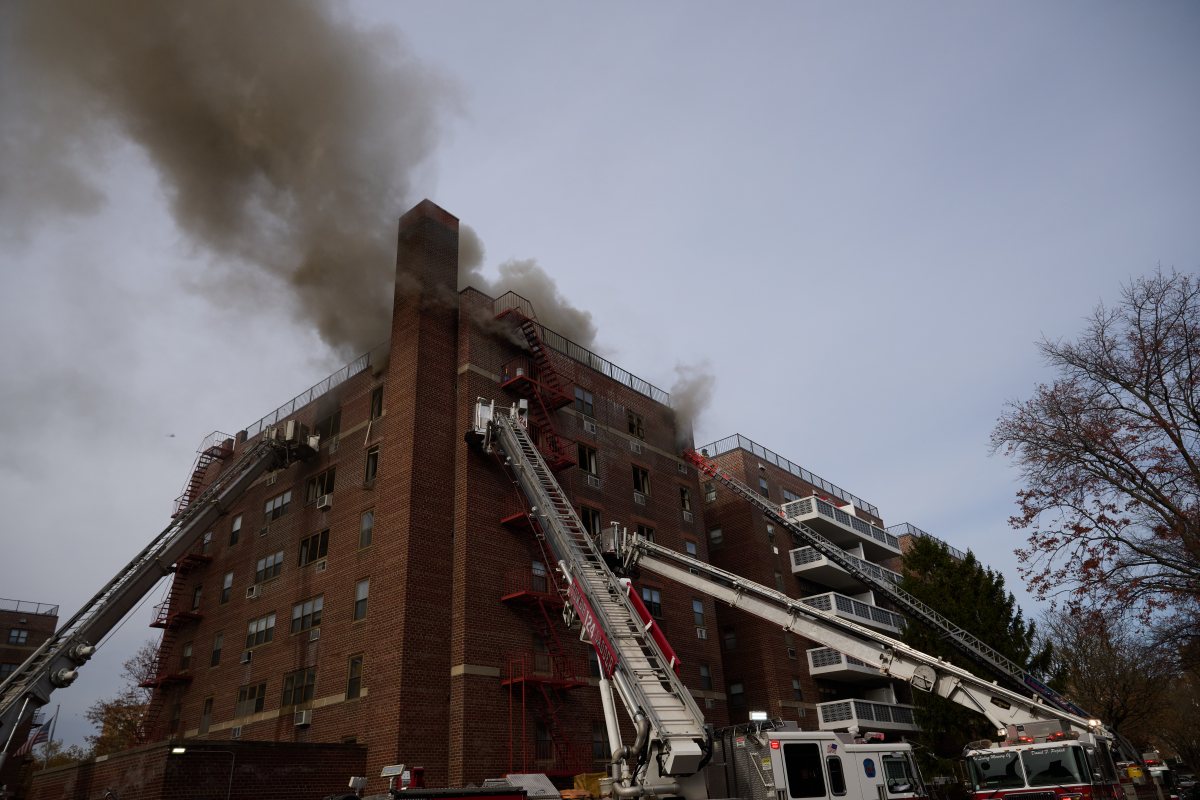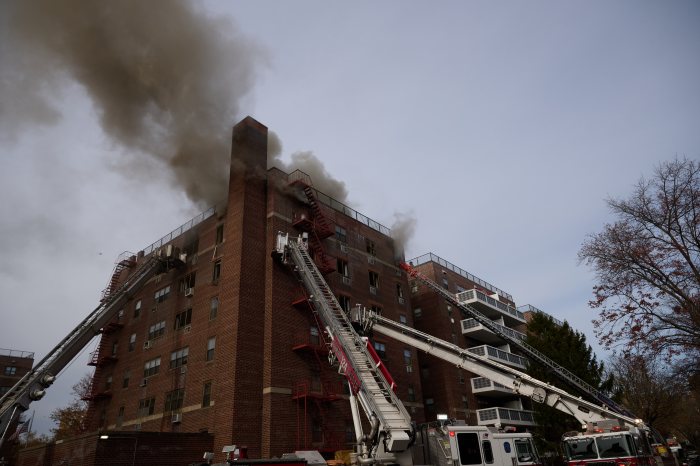By Jefferson Siegel
Last year the whistle-blowing Web site WikiLeaks posted a disturbing video filmed from the gunsight of an American Apache military helicopter. The video, “Collateral Murder,” showed a dozen Iraqi civilians, including two journalists, being gunned down in 2007. To date, the clip has garnered more than 11 million views on YouTube.
Bradley Manning, a Welsh-born U.S. Army soldier, was subsequently identified as the source of the leaked video and was imprisoned by the military. The 23-year-old has been held in solitary confinement in a Marine Corps brig for almost a year. The video, along with the release of tens of thousands of classified documents, could leave Manning liable for the death penalty.
Anger at Manning’s jailing, as well as the government’s pursuit of WikiLeaks and its founder, Julian Assange, sparked a rally on the steps of City Hall last Thursday. On the same day as the political storm over the departure of Schools Chancellor Cathie Black swirled inside the seat of city government, several dozen people stood on the City Hall steps holding signs and chanting, “Free Bradley Manning.”
Dubbed a “Rally for Information Freedom,” the event was intended to expose government oppression done allegedly in the name of national security. An array of activists, military veterans, authors and scientists also slammed the mainstream media for ignoring Manning’s imprisonment and for not more strongly defending WikiLeaks and Assange.
(In an extensive profile in the New Yorker magazine last June, Assange was quoted from a pithy Twitter post as saying, “New funding model for journalism: try doing it for a change.”)
Iconic East Village author Jennifer Blowdryer was the rally’s moderator. She introduced Lawrence Rockwood, a former U.S. Army counterintelligence officer. Rockwood recounted his own arrest and imprisonment in 1994 after attempting to survey what he described as human rights violations in Haiti. Unlike Manning’s isolation, however, Rockwood said he had freer access to the outside world and was even able to write op-ed columns for several publications.
“As an intelligence officer, like Manning, I realized 99 percent of secrets are complete baloney,” Rockwood said. “The big secret about secrets is there is no secrets. The secrecy industry is the number one threat to our security.”
Heidi Boghosian, an East Villager and the executive director of the National Lawyers Guild, compared Manning’s situation with an earlier exposé of government secrecy that rocked the country in the 1970’s.
“Forty years ago, the publication of the Pentagon Papers caused an uproar and condemnation that resulted in the president leaving office,” she noted.
Boghosian was speaking about Daniel Ellsberg — a former Marine and analyst for a military contractor — who gave thousands of pages of classified documents to a New York Times reporter. The leaked papers proved the government lied to Congress and the public about the reasons for, and progress of, the Vietnam War. After the Times printed the first excerpts, the Nixon administration got a court order forcing the “newspaper of record” to cease publishing the documents. The injunction lasted 17 days until the Supreme Court, in a 6-to-3 decision, ruled the government had not met the burden of proving justification for restraint, in effect, reaffirming the concept of freedom of the press.
Last month Ellsberg and several others were arrested when they joined hundreds of protesters outside the Quantico, Virginia, brig where Manning is being held. Many supporters liken Manning’s conditions to torture. He is confined under a “prevention of injury” protocol that includes constant supervision, being kept in his cell 23 hours a day and being forced to sleep without clothes. Some speculate the government hopes the harsh conditions will encourage Manning to turn against WikiLeaks and Assange.
“Washington will go to extreme measures, including torture, to intimidate future whistle-blowers who want to follow their conscience and be true to the founding values of this country,” Boghosian declared.
The “Afghan War Diary,” published last year by WikiLeaks, consisted of thousands of secret reports — also allegedly supplied by Manning — on the war in Afghanistan. Like the Pentagon Papers, “War Diary” reinforced the widespread unease about a seemingly stagnant conflict that has cost the lives of more than 1,530 U.S. soldiers to date, plus hundreds of billions of dollars.
Another speaker at the rally, Barrett Brown, is the founder of Project PM, a think tank working to promote the influence of responsible portions of the blogosphere. He is also a member of the computer activist group Anonymous, which he described as a movement against censorship and secrecy. Brown considers the government’s crackdown on WikiLeaks and Assange a provocation “against all of us, all who care about their liberty and privacy.
“The extent they keep putting us against the wall, we’re going to react,” he said, warning the government of payback.
The rally’s organizer was East Village activist John Penley, who is well known for his documentary photography and neighborhood Slacktivist events. A veteran himself, in 1984, Penley was arrested and held in solitary confinement for protesting at a nuclear weapons plant. He said last week’s City Hall steps rally was intended to bring together people who exist on the edge of the Internet.
“The media is us — it’s no longer in the hands of corporate control,” Penley declared.
A few days later, Penley elaborated on his concerns for Manning and for democracy.
“When you consider what people have done to try to get justice for those who have been victims of the U.S. military — the military and U.S. government are pretty much untouchable,” he said.
“When you look at the information that WikiLeaks leaked out, it’s had a positive effect on the world. Even if you support the wars in Iraq or Afghanistan — or now, Libya — you should know what the military is doing there,” Penley said.
At a London debate last weekend, Assange, speaking of the thousands of government documents released on WikiLeaks, asserted, “The only way we can know whether information is legitimately kept secret is when it is revealed.”
Similar rallies in support of Manning and Assange have been held during the past year in cities around the world, including Toronto, Vancouver and Dallas, and in Australia.





































